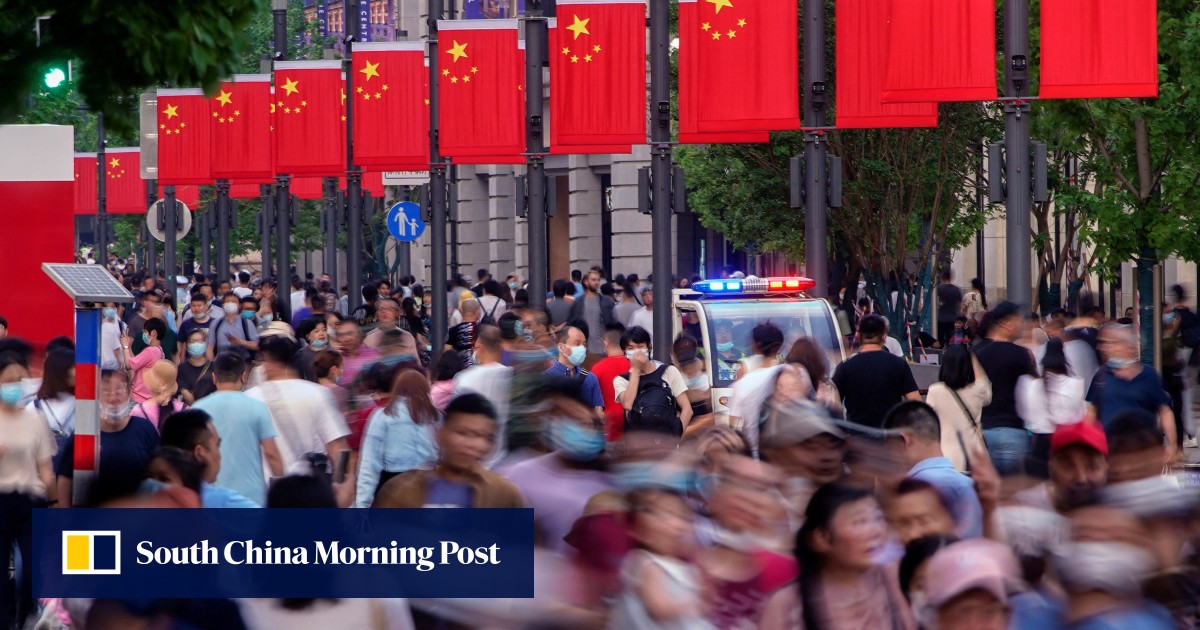### Summary
Beijing is focusing on domestic consumption to offset low external demand.
### Facts
- 🏭 Beijing aims to boost domestic consumption to counterbalance weak foreign demand.
- 🌴 Shandong becomes the latest Chinese province to promote annual leave, despite being legally guaranteed, only 60% of Chinese workers take it.
- 📜 Beijing has recently released measures to encourage holiday and leisure spending.
China is facing a severe economic downturn, with record youth unemployment, a slumping housing market, stagnant spending, and deflation, which has led to a sense of despair and reluctance to spend among consumers and business owners, potentially fueling a dangerous cycle.
China's economy, which has been a model of growth for the past 40 years, is facing deep distress and its long era of rapid economic expansion may be coming to an end, marked by slow growth, unfavorable demographics, and a growing divide with the US and its allies, according to the Wall Street Journal.
China faces challenges in rebalancing its economy towards increased consumer spending due to the economic growth model that relies heavily on investment in property, infrastructure, and industry, as well as the reluctance of households to spend and the limited social safety net; implementing demand-side measures would require difficult decisions and potential short-term pain for businesses and the government sector.
China is implementing measures to boost household spending, ease property policies, increase car purchases, improve conditions for private businesses, and bolster financial markets in an effort to revive the economy's recovery and improve the business environment.
China's economy is struggling due to an imbalance between investments and consumption, resulting in increased debt and limited household spending, and without a shift towards consumption and increased policy measures, the economic slowdown may have profound consequences for China and the world.
China's economy has faced numerous challenges in 2023, including deflation and a property crisis, but another significant threat is the increasing number of wealthy individuals leaving the country, contributing to a brain drain.
China's economic boom, once seen as a miracle, now appears to be a mirage due to failed reforms, an outdated reliance on old economic models, and a growing debt burden, raising concerns about the nation's economic future and the potential for a financial crisis.
China's measures to support the property sector, such as lowering mortgage rates, have limited impact on consumer spending due to the dire economic outlook and lack of longer-term reforms, highlighting the need for resources to be transferred to consumers from other sectors of the economy.
China's middle class, which has grown significantly in the 21st century, is facing challenges as social mobility stalls and the gap between the wealthy and the rest of society widens, leading many to question if China's economic rise is coming to an end.
The economic uncertainty in China has led middle-class consumers to shop at wholesale markets for cheaper goods, impacting the luxury industry and highlighting the weakness in household demand in the country's struggling economy.
China is facing challenges in its economic recovery, including calls for policy clarity, concerns over over-reliance on Chinese EVs, inadequate scientific literacy, declining luxury spending by the middle class, and a shrinking US middle class.
China is seeking to increase productivity and efficiency in its industrial northeast region, facing economic challenges such as an aging population, declining birthrate, and a real estate crisis, but some economists argue that the government's focus on industrial investments is outdated and lacks measures to stimulate consumer confidence and spending.
China's urbanization drive is slowing down, which is expected to further impact the struggling property sector that has been plagued by debt problems and declining consumer confidence. Managing the excess housing supply and diversifying the economy away from reliance on the property sector are crucial for a healthier Chinese economy.
Middle class experiences include budgeting for holidays, stressing about home ownership and mortgages, having a cluttered two-car garage, making choices at a Book Fair, limited food options on road trips, enjoying Costco runs, having massive college debt, saving for kids' college, eating leftovers and making casseroles, needing tools, staying at low-end all-inclusive resorts, having one extra bedroom serving multiple purposes, worrying about credit card usage, and making monthly payments on their kid's braces.
Europe's luxury brands are facing challenges with a slowdown in the Chinese economy and uncertainty over interest rates, leading to a decline in their stock prices and rising concerns over the outlook for luxury consumption across the US, Europe, and China.
The high cost of leisure activities, property values, and living expenses is creating financial struggles for many middle-class Americans, including professionals with college degrees, and leaving younger generations with limited financial independence and opportunities.
